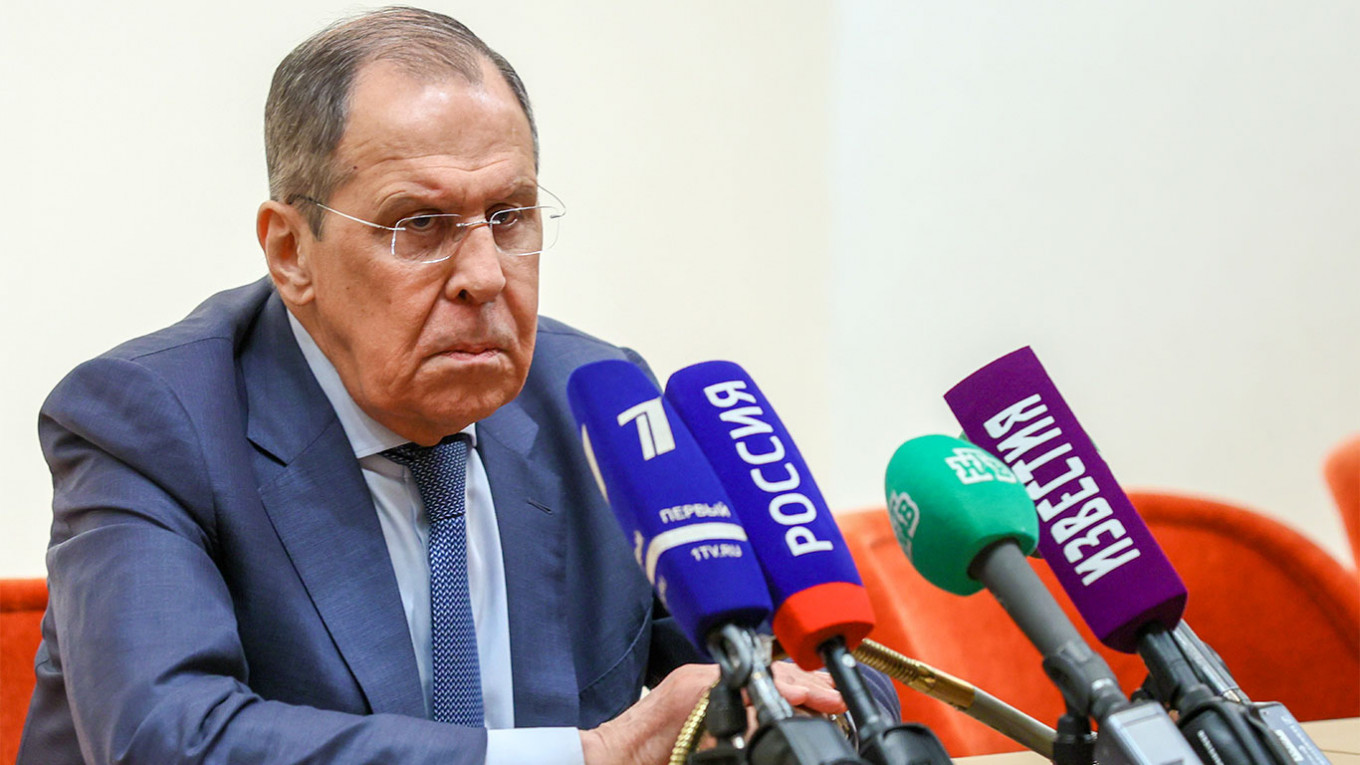
Moscow on Monday furiously condemned the rejection by several European countries of a request for Foreign Minister Sergei Lavrov’s plane to pass through their airspace, forcing him to cancel a trip to ally Serbia.
“The unthinkable has happened,” Lavrov told an online news conference in Moscow.
“This was a deprivation of a sovereign state of the right to carry out foreign policy.”
Bulgaria, Macedonia and Montenegro refused a request from Russia for Lavrov’s plane to pass through their airspaces on the way to Serbia because of sanctions imposed over Moscow’s military action in Ukraine.
Lavrov had been due to hold talks with top officials in Belgrade, one of Moscow’s few remaining allies in Europe since the launch of the offensive in late February.
Lavrov described the move as “outrageous,” insisting that Moscow’s relations with Belgrade would not be “destroyed.”
He said Moscow had invited his Serbian counterpart Nikola Selakovic to visit Russia in the near future instead.
The Kremlin also denounced the moves, with President Vladimir Putin’s spokesman calling them “hostile actions.”
“We are convinced that such actions will not be able to prevent our country’s continuation of contacts, especially with friendly countries,” Dmitry Peskov told journalists.
Lavrov had previously been forced to cancel a trip to Geneva for disarmament talks in late February, after the European Union closed its airspace to Russian aviation.
A Russian diplomatic source told news agency Interfax there had been no choice but to cancel the visit to Serbia.
“Russian diplomacy has not yet learned how to teleport,” the source said.
The chairman of the foreign affairs committee of the Russian parliament’s upper house, Konstantin Kosachev, suggested NATO was pressuring the three countries.
“We are talking about a NATO demarche, and without the United States it could not have happened,” Kosachev said on Telegram.
He accused NATO of “direct intervention” in bilateral ties between Russia and Serbia, and of “trying to seize and subjugate the rest of Europe.”
Atanas Atanasov, co-chairman of the right-wing Democratic Bulgaria, which is part of the ruling coalition, told public BNT television on Monday: “These are part of the measures that the free world places on Russia and they should continue.
“These things reflect on the activity of the Russian state and this is the aim of the measures that are put in place.”
Lavrov had been due to meet President Aleksandar Vucic, Selakovic and Serbian Patriarch Porfirije.
While Serbia has condemned Russia’s military action in Ukraine, it has not joined the European Union in imposing sanctions in Moscow, despite its bid to join the bloc.
The two countries enjoy longstanding close ties and Belgrade recently signed a new three-year contract to receive Russian natural gas.